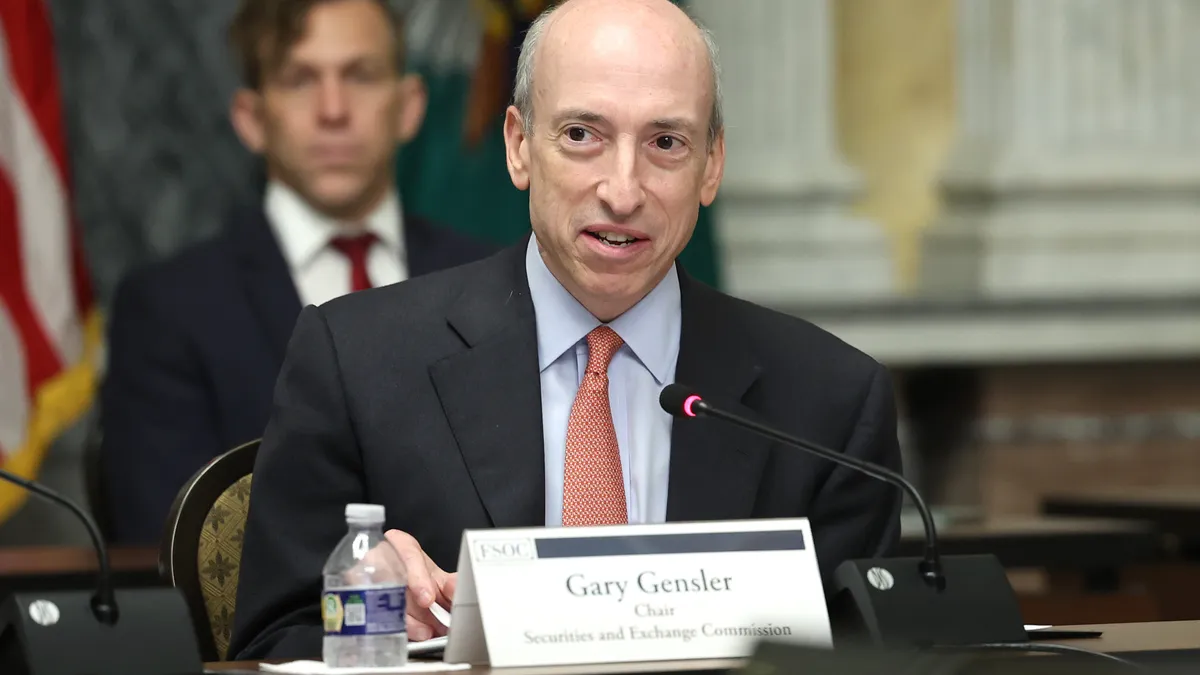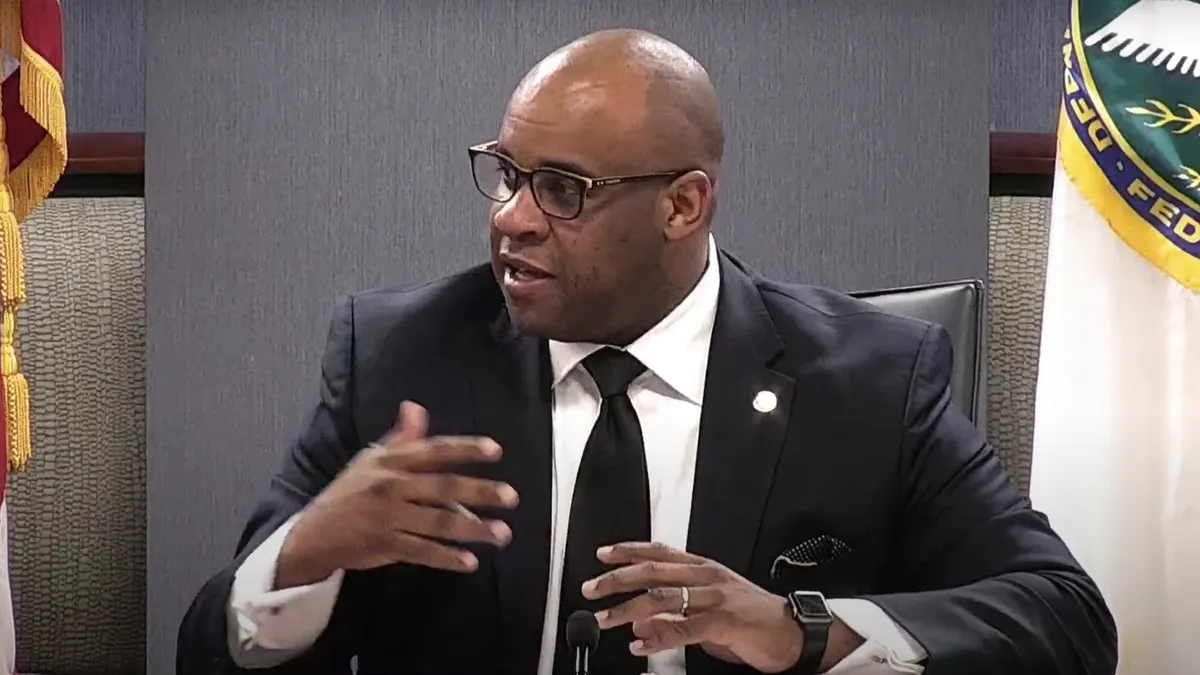When the Securities and Exchange Commission released its climate disclosure proposal in March 2022 mandating that companies describe their levels of greenhouse gas emissions and strategy toward reducing climate risk on their Form 10-K, the announcement was met with much criticism from some Republican lawmakers, industry organizations and dozens of state attorneys general.
The common denominator driving most of these complaints: a requirement for companies to disclose their scope 3 emissions — emissions that are not directly produced by the company itself or assets owned or controlled by the company, but by entities that are part of the company’s value or supply chain, according to the Environmental Protection Agency. Even though corporations may not directly produce these emissions, scope 3 emissions often represent the majority of their total greenhouse gas emissions.
Since unveiling its climate disclosure rule, the SEC received over 16,000 public comments to the proposed rule, causing the agency to repeatedly postpone its release date, most recently missing an expected October release, as it reviewed these comments.
Last month, the agency revealed it plans to finalize the long-awaited rule in April 2024, but provided no further insight into what the ultimate version of this rule would entail, and whether it would include any amendments to scope 3 disclosure requirements.
Given all of the backlash, experts and some corporations doubt the requirements will make the final cut at this point.
Why all the fuss over scope 3?
The SEC’s original proposal asked companies to disclose scope 3 emissions “if material or if the registrant has set a GHG emissions target or goal that includes scope 3 emissions.” The agency said such emissions disclosures would provide investors with information useful in making decisions when assessing a company’s “exposure to, and management of, climate-related risks, and in particular transition risks” — but the SEC did note smaller reporting companies would be exempt from such disclosure requirements.
The proposed disclosure rule is not a far cry from global disclosure requirements already in place, such as the European Union’s Corporate Sustainability Reporting Directive, whose scope 3 reporting requirements are far more extensive, and California’s own disclosure laws, which also mandate scope 3 reporting. However, that hasn't shielded it from coming under intense fire from critics. Opponents to the regulation claim the mandate imposes an onerous burden on businesses, requiring disclosures that are not material to investor decisions and extends the agency’s authority well beyond its congressional mandate.
Organizations such as Western Energy Alliance and the U.S. Oil & Gas Association wrote to SEC Chair Gary Gensler in June 2021, and inquired whether the SEC had a congressional mandate to “regulate in the sphere of climate disclosure at all” and the implications that would arise if it sought to “aggressively regulate in this space,” when the agency first sought public input.
“With disclosure and ESG reporting in their infancy compared to well-established financial disclosures, it is better for competing systems to continue to evolve before the federal government imposes a bureaucratic straitjacket,” the letter continued, asking the agency to not overstep its authority beyond investor protection and capital formation.
Texas Attorney General Ken Paxton echoed this sentiment in a June 2022 letter he wrote, along with 12 other attorneys general, opposing the rule. Paxton said the climate rule was “flawed,” particularly in relation to scope 3 emissions disclosures, as its proposed requirements would “not produce consistent and reliable information for investors.” Reporting on scope 3 emissions requires companies to “gather information from a vast array of sources, including data on the transportation, distribution, processing, use, and end-of-life treatment of a [company’s] goods” and the accuracy of such data may be low, he claimed.
“The reliability of Scope 3 GHG emissions reporting is also doubtful, which makes inclusion of statements about Scope 3 potentially harmful to the very investors whom the SEC is supposed to protect,” Paxton wrote.
The SEC, after receiving volumes of such feedback, said it was aiming to avoid exceeding its authority as it finalizes the climate risk rule.
“We did get a lot of feedback on that — that those estimates might then lead to the companies asking the supply chain for forms and numbers and everything like that,” Gensler told the U.S. Chamber of Commerce in October. “So that’s why staff is looking through as to how we can ensure that we don’t indirectly sort of do what we can’t do directly — we don’t regulate nonpublic companies.”
What happens next: The fate of scope 3
While some companies have argued against having any form of formal climate disclosure requirements, many find the SEC’s proposal to be in line with disclosure rules already in place, both within the EU and the U.S., with states like California enacting climate risk regulation in the form of Senate Bills 253 and 261.
“For eBay, we don’t have any qualms or problems disclosing our emissions because we have been,” Renee Morin, eBay’s Chief Sustainability Officer, told ESG Dive. “I think it’s really going to be more about the fact that there are multiple lines of work, both globally and here in the U.S.”
However, Morin noted eBay — along with other companies such as Amazon, Facebook, Salesforce and Intel which have already been voluntarily making climate-related disclosures — provided the SEC with public input regarding what they believed would work and what wouldn’t, particularly around scope 3 emissions reporting.
“Given that climate disclosures rely on estimates and assumptions that involve inherent uncertainty, it is important not to subject companies to undue liability, including from private parties,” the companies’ June 2021 letter said. “Also, reporting deadlines should allow sufficient time for companies to gather and validate information obtained from third-party providers.”
The lengthy finalization process has left some companies unsure about whether scope 3 disclosure requirements will make the final cut of the SEC’s climate disclosure rule.
“I would say at the moment, it’s uncertain whether the reporting of indirect emissions by a company’s suppliers, what you would describe as scope 3, will be included [in the final rule],” Mark Stach, the chief services officer at Sphera — an ESG performance and risk management software, data and consulting services provider — told ESG Dive. “I don’t think that’s a certainty as of yet.”
Erin Martin, a partner at ESG and sustainability advisory firm Morgan Lewis, mirrored Stach’s prediction, telling ESG Dive the general consensus among experts is that scope 3 is “likely on the chopping block.”
Martin, who spent more than a decade in the SEC’s Division of Corporation Finance, said scope 3 remains “one of the significant areas of concern [regarding] the ability to actually implement the necessary policies and procedures to provide that type of disclosure.” She also said there’s an outstanding issue of not having adequate infrastructure in place outside of a company that would be able to record and provide high-quality data concerning a company’s value chain.
However, she qualified the prediction with the expectation that excluding scope 3 from the final rule is unlikely to preclude it from legal challenges.
“Even if scope 3 is no longer in the final rulemaking … I do think that there's still going to be significant pushback about scope 1 and scope 2 as well,” Martin said.























